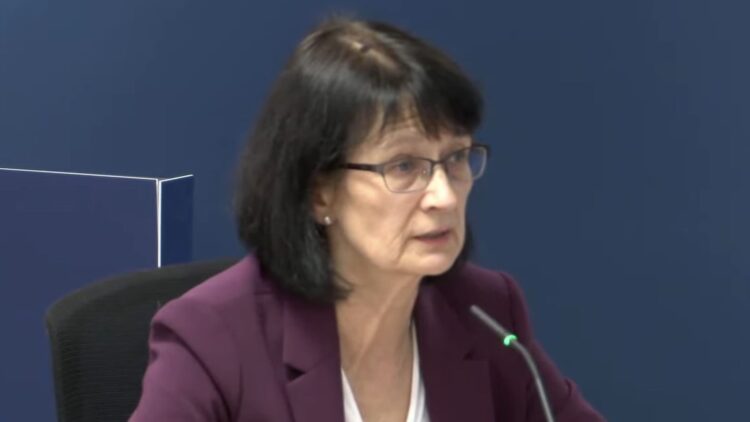By Ben Kerrigan-
Dame Jenny Harries, England’s former deputy chief medical officer has criticized the effectiveness of face coverings in reducing transmission , just as it emerged from past emails that she had recommended sending Covid patients into care homes.
Ms Harries(pictured) said there was little evidence on the effectiveness of homemade face coverings and she was concerned that recommending them could encourage people to socialise more and lead to a “false sense of security”.
“If people just thought they could get a bit of t-shirt, put it around their face, and that would solve all our problems and we could go back to normal [then] that was not going to be a good public health intervention,” she said
She maintained that the evidence on face coverings is still “uncertain”, partly because it’s so difficult to design a study to accurately test their effectiveness in real world conditions.
Her comments will dampen public confidence in government guidance, after so much was out into recommending masks during the heights of the pandemic, not just in the UK, but also in the U.S.
Mask wearing, just like lockdown decisions proved controversial during the pandemic, but few people would have expected a former deputy medical chief officer to discredit one of the key measures for maintaining safety during the pandemic.
In relation to discharging Covid patients into care homes in March 2020, she said it was necessary, adding that this controversial decision, deemed “entirely clinically appropriate” at the time, is now under scrutiny as concerns are raised over its impact on the vulnerable residents of these care facilities.
In an email dated March 2020, she acknowledged the reluctance of families and care homes to welcome such a decision initially.
“While the prospect is perhaps what none of us would wish to plan for, I believe the reality will be that we will need to discharge Covid-19 positive patients into residential care settings,” stated Harries in the email submitted to the inquiry.
This revelation raises questions about the decision-making process during the early days of the pandemic and the potential consequences for the residents of care homes. The move to discharge Covid patients into care homes has been widely criticized, given the vulnerability of the elderly population residing in these facilities.
The inquiry also showcased Harries’s skepticism about the effectiveness of face coverings, quoting her as saying they were “unlikely” to have an impact on reducing transmission. She went further to express concern that recommending cloth face coverings risked creating a “false sense of security” among the public, labeling the guidance in May 2020 as “ineffective.”
These statements by Dame Jenny Harries, a prominent figure in the UK’s public health response, have ignited debate and raised concerns about the decision-making process during the critical early stages of the pandemic.
Critics argue that the discharge of Covid patients into care homes may have contributed to the devastating impact on these vulnerable populations.
These statements by Dame Jenny Harries, a prominent figure in the UK’s public health response, have ignited debate and raised concerns about the decision-making process during the critical early stages of the pandemic. Critics argue that the discharge of Covid patients into care homes may have contributed to the devastating impact on these vulnerable populations.
Former cabinet ministers Sajid Javid and Dominic Raab are set to give evidence later today.
-
Share On
- Categories
- Date

